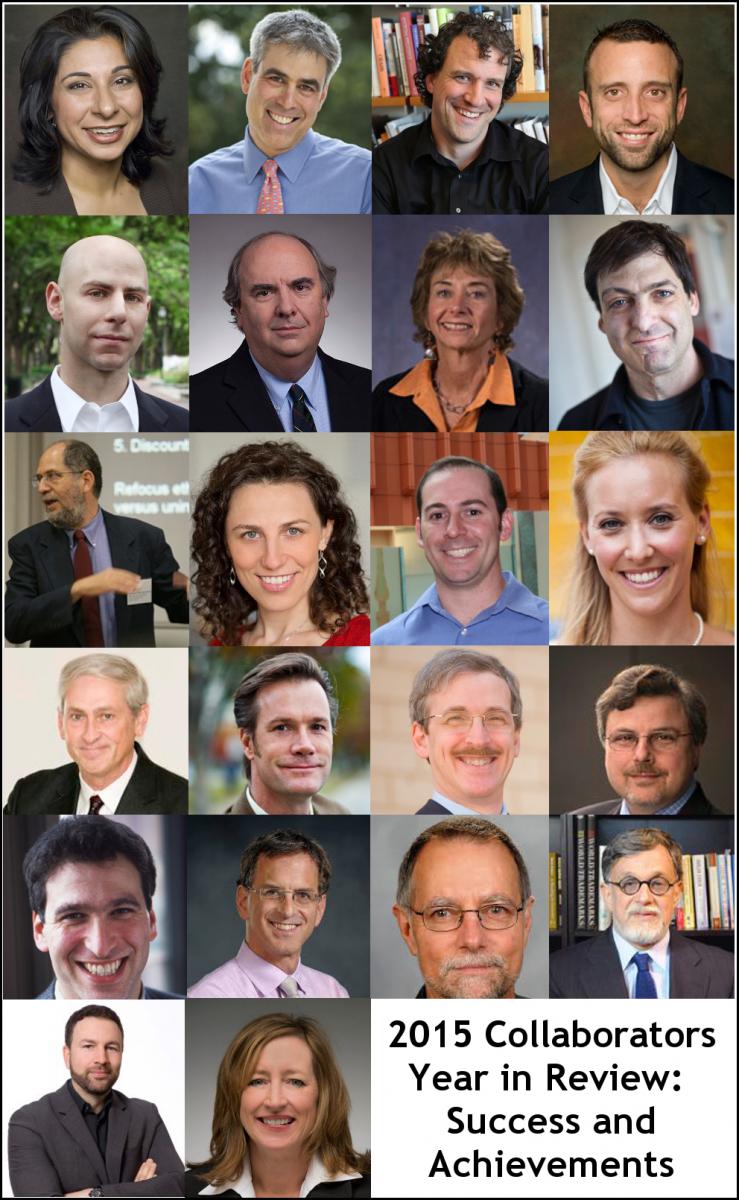Tag Archive for: David Mayer
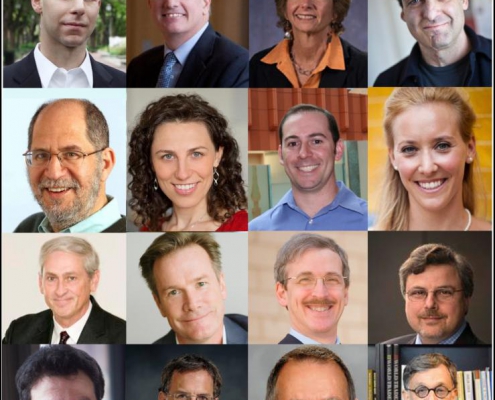
2016 Collaborators in the News: A Year of Many Achievements
Blog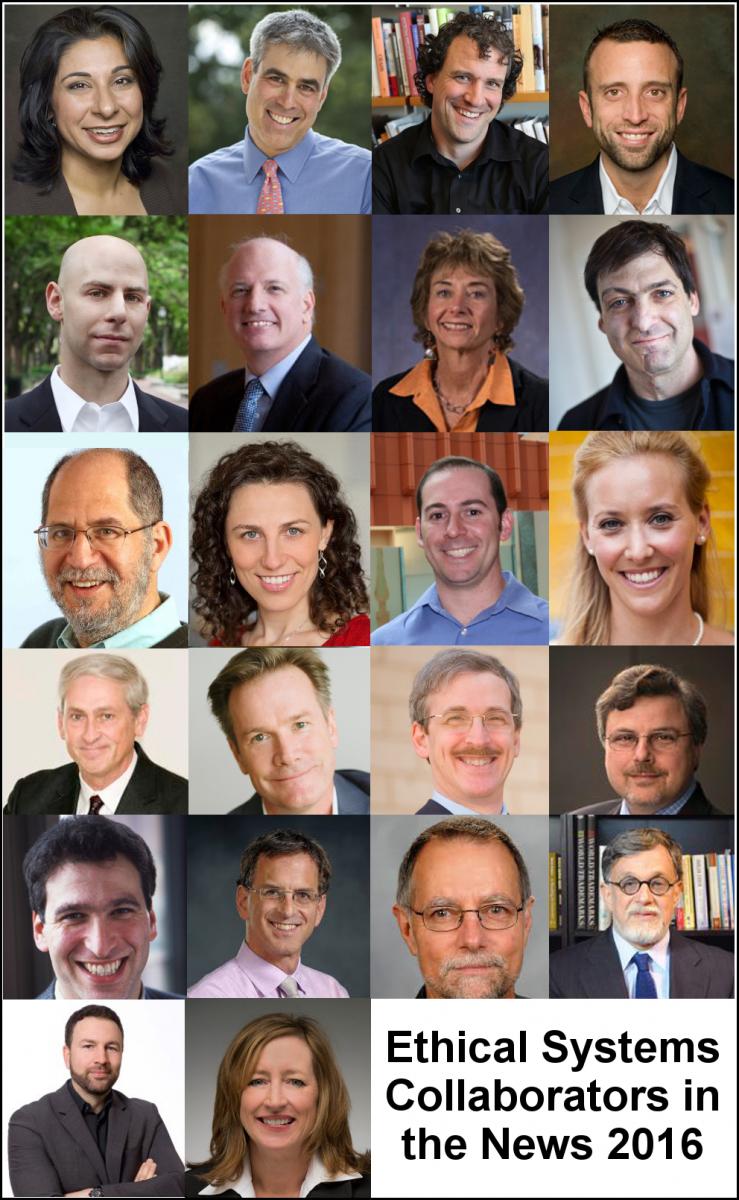 2016 was a year of many achievements for our growing collaborator network. We invite you to browse a highlight list of the research, articles, appearances and talks that helped advance our mission and promote a greater understanding of ethics, decision making, and ethical systems design.
2016 was a year of many achievements for our growing collaborator network. We invite you to browse a highlight list of the research, articles, appearances and talks that helped advance our mission and promote a greater understanding of ethics, decision making, and ethical systems design.
Browse our collaborators and their highlights and achievements from this year >>

Why Your Hiring Process Keeps Missing Candidates’ Character Flaws
Blog In a captivating article for Fast Company ES collaborator David Mayer, of the Ross School of Business at the University of Michigan, outlines “Why Your Hiring Process Keeps Missing Candidates' Character Flaws.”
In a captivating article for Fast Company ES collaborator David Mayer, of the Ross School of Business at the University of Michigan, outlines “Why Your Hiring Process Keeps Missing Candidates' Character Flaws.”
We at Ethical Systems talk a lot about hiring for ethics and culture, as opposed to hiring for skills and personality, during the interview process. The reason is that the dialogue between employer and potential employee is wrought with miscues, overestimations, hyperbole and a reliance on presenting the best possible version of oneself. In addition, research by ES collaborator Nick Epley, and cited in the Fast Company piece, highlights how we are actually less reliable than we may think when it comes to identifying deceits and spotting potential bad apples.

Internal Reporting: Praising leaders for identifying issues
Blog Internal reporting is one of the quickest ways employees can alert relevant organizational- and governmental- contacts that something is amiss. While extensive research shows that a major impediment to doing so is fear of retaliation, new research from ES collaborator David Mayer and others demonstrates that for organizational leadership, speaking up is an asset while keeping quiet about ethical lapses is viewed as detrimental.
Internal reporting is one of the quickest ways employees can alert relevant organizational- and governmental- contacts that something is amiss. While extensive research shows that a major impediment to doing so is fear of retaliation, new research from ES collaborator David Mayer and others demonstrates that for organizational leadership, speaking up is an asset while keeping quiet about ethical lapses is viewed as detrimental.
The study, “When are Do-Gooders Treated Badly? Legitimate Power, Role Expectations, and Reactions to Moral Objection in Organizations,” [PDF] to be published in the Journal of Applied Psychology, identifies important implications for both people and organizations.
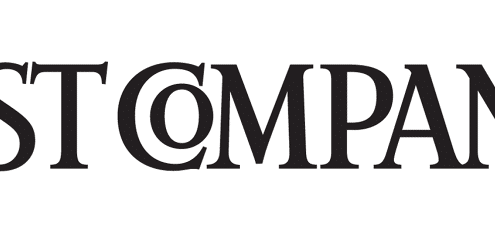
David Mayer Writes For Fast Company
Blog David Mayer, associate professor of management and organizations at the University of Michigan's Stephen M. Ross School of Business has recently signed on as a monthly contributor to Fast Company, writing about business ethics and leadership.
David Mayer, associate professor of management and organizations at the University of Michigan's Stephen M. Ross School of Business has recently signed on as a monthly contributor to Fast Company, writing about business ethics and leadership.
From their website: Fast Company "is the world's leading progressive business media brand, with a unique editorial focus on innovation in technology, ethical economics, leadership, and design."
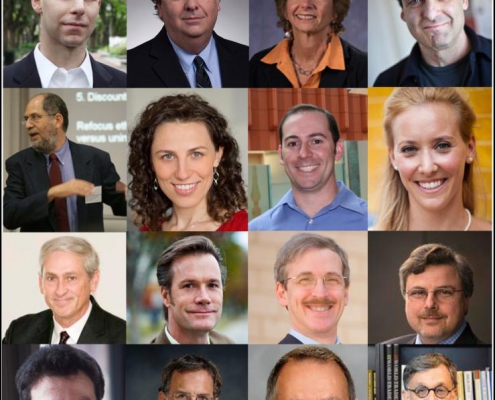 https://www.ethicalsystems.org/wp-content/uploads/2015/12/Head-shots_MONTAGE.jpeg
1200
739
Jeremy Willinger
https://ethicalsystems.org/wp-content/uploads/2020/04/ES-logo-final-white.gif
Jeremy Willinger2015-12-11 14:48:052020-03-26 16:58:122015 Collaborators in the News: A Year of Many Achievements
https://www.ethicalsystems.org/wp-content/uploads/2015/12/Head-shots_MONTAGE.jpeg
1200
739
Jeremy Willinger
https://ethicalsystems.org/wp-content/uploads/2020/04/ES-logo-final-white.gif
Jeremy Willinger2015-12-11 14:48:052020-03-26 16:58:122015 Collaborators in the News: A Year of Many Achievements
Navigating the Amazon: Workplace Culture and Ethics
Blog While talk in August can normally drift to Labor Day vacation plans and how to brew the perfect pitcher of iced tea, a different sort of discussion began to surface in offices (and backyards) across America: that of workplace culture and the different extremes that workers at Amazon report as the norm.
While talk in August can normally drift to Labor Day vacation plans and how to brew the perfect pitcher of iced tea, a different sort of discussion began to surface in offices (and backyards) across America: that of workplace culture and the different extremes that workers at Amazon report as the norm.
The New York Times article that started it all, "Wrestling Big Ideas in a Grueling Workplace," provided an eye-opening look into the management practices, feedback loops and performance measurement metrics at Amazon, eliciting both accolades and acrimony from current and former employees. After much debate, the dust settled at a realization that the intensity is both a blessing and a curse and tailored for only certain kinds of personalities. An overarching theme was that burnout is common and, to a certain extent, expected.

Why CEO Activism Could Change the World of Public Companies
Blog
Featured Collaborator of July/August: David Mayer
BlogInterview with David Mayer, associate professor in the Management and Organizations Area at the Ross School of Business at the University of Michigan
What are your main areas of research?
 I am an organizational scholar who focuses primarily on one fundamental question: When and why do individuals in organizations engage in unethical and prosocial behavior? More specifically, I am interested how the social environment in organizations (e.g., leadership, peers, organizational climate, organizational practices) impacts unethical and prosocial behavior.
I am an organizational scholar who focuses primarily on one fundamental question: When and why do individuals in organizations engage in unethical and prosocial behavior? More specifically, I am interested how the social environment in organizations (e.g., leadership, peers, organizational climate, organizational practices) impacts unethical and prosocial behavior.
I am also fascinated with the question of whether employees and leaders think that business and work are part of the moral domain of social life and I have worked on several papers that demonstrate that at times “business” and “ethics” are inseparable and at times they are, as the truism suggests, an oxymoron.
In contrast to the bulk of work taking a social science lens on ethics, I typically take a positive lens by not focusing solely on identifying pitfalls and biases that lead to unethical behavior, but by understanding how the context at work can improve prosocial behavior, how employees and leaders in organizations can influence others to do good, and when leaders and employees are most likely to act in ways that suggest they consider work to be a moral domain.

2014 Highlights from Our Collaborators
Blog

